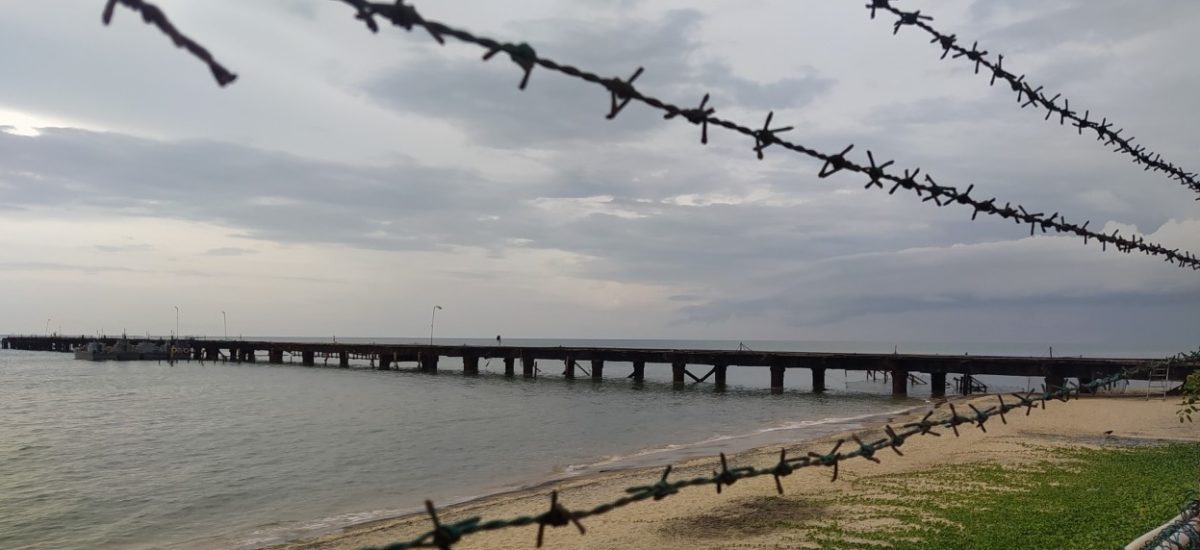Photo courtesy of Centre for Poverty Analysis
The 2030 agenda for sustainable development encompasses a transformational vision for a world free of poverty and hunger through its 17 Sustainable Development Goals (SDGs) and 169 targets. Conflict, weak institutions, and limited access to justice remain key challenges to achieving this. SDG 16 promoting just, peaceful, and inclusive societies was established to expedite its achievement. These goals were envisioned to be indivisible: what happen in one will affect others. As there are less than 10 years left to achieve SDGs, Southern Voice, UNDP Oslo Governance Centre, and the Centre for Poverty Analysis (CEPA) hosted a series of virtual roundtable discussions to review the progress of SDG 16 in the context of the COVID-19 pandemic in South Asia and South East Asia. Here are a few points from one of the consultations ahead of a policy brief titled “Reversing the Inequalities in Power Distribution: Findings and Recommendations from Asia”.
Time for economic justice
Despite being a critical foundational component for reducing poverty and reducing all forms discrimination, Asia has witnessed a sharp decline in all measurable indicators of SDG 16 (i.e. that which can be measured with adequate data available). Particularly against the backdrop of COVID-19 and resultant lockdowns, institutions that govern democracy have eroded, all types of violence against women and girls have amplified and access to justice has reduced. As a region afflicted by democratic backsliding even before the pandemic, COVID-19 has resulted in further decline in the achievements reached by the region so far. This then has spill over effects on other goals.
The pandemic has compounded pre-existing fiscal weaknesses, which has resulted in a “rise of poverty, inequality, and poor nutrition that is visible throughout the South Asian region,” says Avani Kapur, an expert in public financial management, participating in the roundtable. Many countries across the region have experienced declining GDP growth that has disproportionately affected vulnerable communities such as women, the poor, migrant workers and indigenous people. The economic impact of the pandemic has pushed those living in poverty and living in the margins of poverty further below the poverty line, necessitating the need to revisit conceptual understanding of transitional justice to include economic justice.
The impact of health sector deficiencies
The inadequate financing and deficient allocation of funds in the health service sector is a key issue surfaced by the pandemic. “The COVID-19 pandemic has exposed the cracks in society as inequality is magnified and weaknesses in institutions that are under-funded and under-supported are highlighted,” says Jyostna Mohan, whose expertise is in civil society, governance and accountability. Gaps in data available on health care infrastructure and the availability of medicine at village level has deepened the rural-urban divide in terms of accessing basic services. In fact, the black marketing of medicine and the shortage of oxygen indicates that cracks in health care service provision exists largely even at city level.
The trend of pre-existing inequalities being exacerbated by the pandemic is reflected in the continued oppression of people and the disempowerment of vulnerable communities. Voices of marginalised and disenfranchised communities are usually heard through local governments as they play an important role as communicators between the public and the federal/national government. Drawing on insights from Bangladesh, Dr Fatemeh Kamali-Chirani, an expert in governance, states that the pandemic temporarily halted local government elections. In the absence of it, the public has failed to get help in time, further reducing access to basic services by vulnerable groups.
The ones who profit
An even more concerning trend that contrast sustainable development is the feeding of corporate pursuits that is emerging alongside the pandemic. Health care is a fundamental human right and the vaccination process should leave no one behind. However, in the presence of corporate interests, an equitable distribution of vaccines may be prevented as governments seek trade-offs between health care service delivery and profit pursuits of pharmaceutical giants. Therefore, much like dealing with any other institution or process, there is a critical need for transparency and comprehensive accountability in vaccination roll outs.
Moreover, the burgeoning popularity of right-wing politics in countries of the region has led to the state setting the agenda and controlling the narrative around the pandemic. “States have resorted to abusing the implementation of emergency power in the name of ensuring social distancing and pandemic guidelines,” says Niranjan Sahoo, whose expertise is in governance, conflicts, and peace and security. This has shrunk the democratic space through increased militarisation, consolidation, and autocracy. Fundamental rights such as freedom of expression are curtailed. Under the premise of controlling misinformation and fake news, democratic space in Asia has not only regressed, but has been actively closed.
Way forward
A positive aspect of the pandemic is that it has exposed cracks and fault lines that pre-dated it. “At the start of the pandemic, there was a golden opportunity for SDG 16 to be asserted,” says Gus Miclat, an advocate of democratisation and people-to-people solidarity. Unfortunately, this has not materialised. While the pandemic has derailed the achievement of SDGs, it has also positively manifested the importance of transparency, decentralisation, accountability, and good institutions. Also, it has made it clear that these elements are necessary for tackling poverty, even more so in the context of external shocks. With less than a decade left for achieving SDGs, countries should then be compelled to learn from their mistakes. The localisation of SDGs to empower citizens to contribute towards their achievement is more urgent than ever.
This article is the first of five published on the CEPA Blog as part of a series to understand the impacts of COVID-19 on poverty and inequality.


